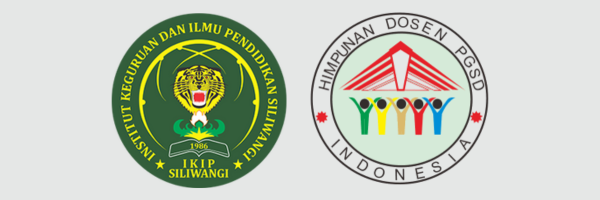Building Students' Social Skills in Learning Conflict Resolution in Grade IV of Laboratory Elementary School
DOI:
https://doi.org/10.22460/pej.v7i2.3446Abstrak
This study aims to describe the results of students' social skills in learning conflict resolution in the fourth grade of Laboratory Elementary School of UPI Cibiru Campus. The research method used is qualitative research. Research results show that the implementation of conflict resolution learning in building social skills in grade IV is carried out through three stages, i.e., 1) preparation stage, 2) implementation stage, and 3) evaluation stage. The preparation stage is the stage of conducting curriculum analysis to see graduate competency standards, core competencies, and basic competencies; mapping the competencies, determining themes, compiling materials, designing evaluation tools, and designing lesson plans. The implementation phase consists of: 1) opening activities, 2). the main activities which include the following stages: search, logical reasoning, agreement building, decision making, conflict reflection, and 3) closing activities. The evaluation phase includes the assessment of affective, knowledge, and social skills competence.
Learning conflict resolution for the fourth graders of Laboratory Elementary School of UPI Cibiru in Bandung Regency has an impact on the development of students' social skills including thinking skills, cooperation skills, and emotional control skills. Teachers have focused attention on setting up learning systems and developing conflict resolution learning that enables students to increase their social skills.
Referensi
Arends. 2008. Learning to Teach, Belajar untuk Mengajar. Yogyakarta: Pustaka Belajar.
Bremer, C.D. & Smith, J. 2004. Teaching Social Skills. National Center on Secondary Education and Transition Information Brief, 3 (5).
Cartledge, G., & Milburn, J. F. (1995).Teaching Social Skills to Children & Youth Innovative Approaches.Massachussetts : Allyn and Bacon.
Cowie, H & Jennifer, D (2009).Penanganan Kekerasan di Sekolah. Jakarta: PT Indeks.
Istianti (2022). Pengembangan Model Pendidikan Resolusi Konflik Berbasis Kearifan Lokal di Sekolah Dasar. Disertasi. Universitas Pendidikan Indonesia.
Minarni, A. (2012). Pengaruh pembelajaran berbasis masalah terhadap kemampuan pemahaman matematis dan keterampilan sosial siswa smp negeri di Kota Bandung. Jurnal Pendidikan Matematika, 6(2), 162–174. https://doi.org/10.24114/paradikma.v6i2.1077
Maryani, Enok.2011. Pengembangan Program Pembeajaran IPS untuk Peningkatan Keterampilan Sosial. Cetakan ke-1. Bandung: Alfabeta
Michael Scriven. (1994). Duties of The Teacher: Journal of Personnel Evaluation in Education. 8 (2).
Moleong Lexy J, Metodologi Penelitian Kualitatif (Bandung: PT. Remaja Rosdakarya, 2009), hlm. 26.
Ni Ketut Agustini, I Wayan Sujana, I Ketut Adnyana Putra. (2019). Korelasi Antara Kecerdasan Emosional dengan Interaksi Sosial Siswa Kelas V SD Gugus VI Pangeran Diponegoro Denpasar Barat. Jurnal Pedagogi dan Pembelajaran. Vol 2, No.1
Owens, R.G. (1995). Organizational Behavior in Educations. Boston: Allyn and Bacon
Rahayu, L.S. (2019). KPAI: Angka Kekerasan pada Anak Januari-April 2019 Masih Tinggi. [Online]. Diakses dari https://news.detik.com/berita/d-4532984/kpai-angka-kekerasan-pada-anak-januari-april-2019-masih-tinggi
Stevenson, N. (2003). Cultural Citizenship.Cosmopolitan Questions.Issues in Cultural and Media Studies. Berkshire: Open University Press.
Thornberg, R. (2010). School democratic meetings: Pupil control discourse in disguise. Teaching and Teacher Education, 26, 924–932
VanAcker, R. (1993). Dealing with conflict and aggression in the classroom: What skills do teachers need? Teacher Education and Special Education,, 23-33.
Unduhan
Diterbitkan
Terbitan
Bagian
Lisensi
Hak Cipta (c) 2023 PrimaryEdu : Journal of Primary Education

Artikel ini berlisensiCreative Commons Attribution-ShareAlike 4.0 International License.
The author is responsible for acquiring the permission(s) to reproduce any copyrighted figures, tables, data, or text that are being used in the submitted paper. Authors should note that text quotations of more than 250 words from a published or copyrighted work will require grant of permission from the original publisher to reprint. The written permission letter(s) must be submitted together with the manuscript.











